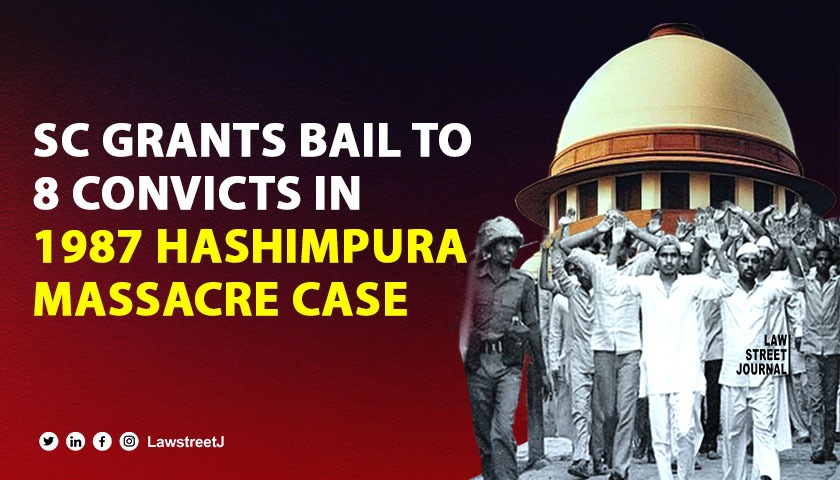NEW DELHI: The Supreme Court on Friday granted bail to eight convicts in the infamous 1987 Hashimpura case related to alleged massacre of
38 persons by the Provincial Armed Constabulary personnel.
A bench of Justices Abhay S Oka and Augustine George Masih took note of the submissions of senior advocate Amit Anand Tiwari, appearing for four convicts, that they were suffering prolonged incarceration after the Delhi High Court reversed their acquittal by the trial court in the case.
Supreme Court Grants Bail in Hashimpura Massacre Case After 6 Years of Incarceration
The counsel, representing Sami Ullah, Niranjan Lal, Mahesh Prasad, and Jaipal Singh, submitted that appellants had been in jail for over six years since the high court verdict in 2018.
He emphasised that the appellants were previously acquitted by the trial court and their conduct during the trial, and appeal process, was
exemplary.
1987 Hashimpura Massacre: SC Addresses Convicts’ Plea Against Delhi HC Verdict
The counsel further contended that the reversal of the trial court's well-reasoned acquittal by the high court was based on erroneous grounds.
Having taken note of the submissions, the court allowed the pending bail pleas of eight convicts.
The Hashimpura massacre took place on May 22, 1987 when Provincial Armed Constabulary (PAC) personnel, belonging to the 41st Battalion's "C-Company", allegedly rounded up approximately 50 Muslim men from Hashimpura in Meerut, Uttar Pradesh, during communal tensions.
The victims were taken to the city outskirts on the pretext of being ferried to a safer place due to communal riots. They were fatally shot there, and their bodies were dumped in a canal.
The incident resulted in the death of 38 persons, leaving only five survivors to recount the horror.
The trial court, in 2015, acquitted 16 PAC personnel, citing a lack of evidence to establish their identification and involvement.
In 2018, the Delhi High Court reversed the trial court's decision and convicted the 16 accused under Sections 302 (murder), 364 (kidnapping or abducting in order to murder), and 201 (causing disappearance of evidence) read with Section 120B (criminal conspiracy) of the IPC, sentencing them to life imprisonment.
The convicts moved the Supreme Court challenging the high court's verdict, which is pending adjudication.















